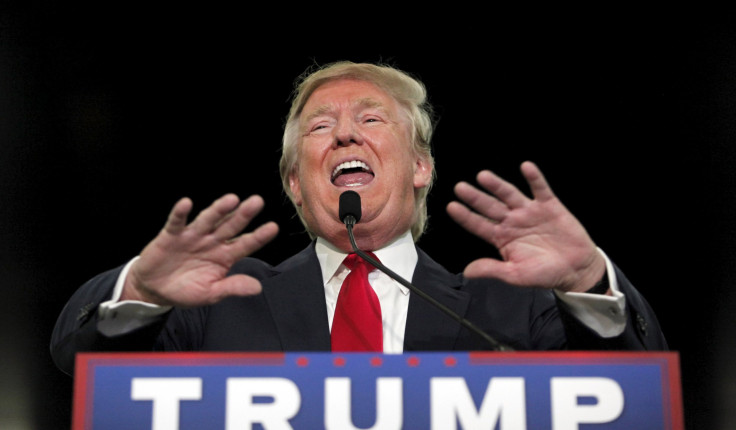Donald Trump Says He Never Met Disabled Reporter He Mimicked

Donald Trump, the front-runner in the race for the Republican U.S. presidential nomination, said Thursday he had no intention of making fun of a reporter’s disability and, in fact, had no idea who the guy is. Trump ran into harsh criticism over his treatment of Serge Kovaleski, saying the reporter wrote articles after the Sept. 11, 2001, terrorist attacks on America citing Muslim celebrations in New Jersey but does not remember writing them.
— Donald J. Trump (@realDonaldTrump) November 26, 2015Trump’s commentary included spastic movements before a crowd in South Carolina Tuesday. Kovaleski suffers from arthrogryposis, which impairs arm movements.
“Now the poor guy, you gotta see this guy: ‘Uhh, I don’t know what I said. I don’t remember.’ He’s going, ‘I don’t remember. Maybe that’s what I said,’” Trump said while flailing his arms. “This was 14 years ago -- they didn’t do a retraction.”
In a Twitter post Thursday, Trump said he merely was mimicking “what I thought would be a flustered reporter trying to get out of a statement he made long ago. If Mr. Kovaleski is handicapped, I would not know because I do not know what he looks like.”
Trump accused the Times of dishonesty and “trying to make a story out of nothing.” He advised the paper to focus on its survival, instead.
The controversy began when Trump insisted he had seen Muslims in New Jersey celebrating the collapse of the World Trade Center towers in New York, something investigators say never happened.
Trump has made outrageous statements the hallmark of his campaign. In his campaign announcement, he asserted many Mexican immigrants are drug runners and rapists. More recently, he called for special identification cards for Muslims.
RealClearPolitics’ average of the latest polls has Trump leading his rivals for the GOP nomination by 7.7 percentage points, with 27.5 percent support. His nearest rival is retired neurosurgeon Dr. Ben Carson, with 19.8 percent, followed by U.S. Sen. Marco Rubio of Florida, with 12.5 percent, and Sen. Ted Cruz of Texas, with 11.3 percent. All the other candidates in the field are in single digits, percentagewise.
© Copyright IBTimes 2024. All rights reserved.





















